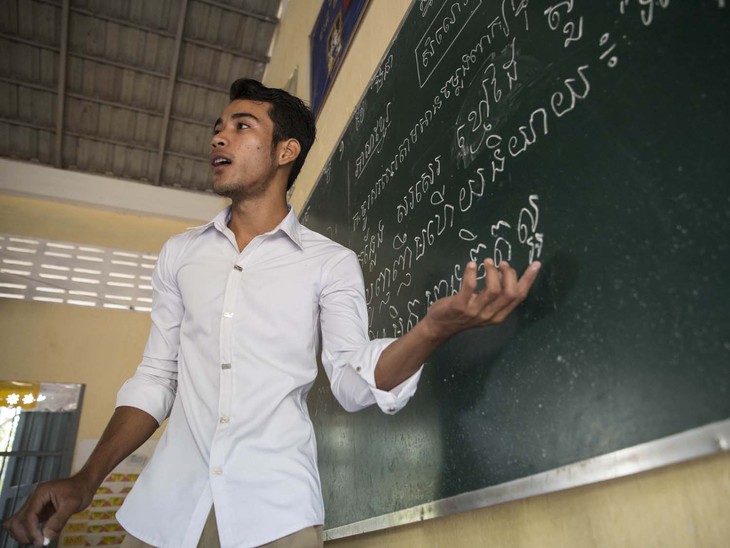
Teachers working in a remote area in Cambodia - Photo: CCTNZ
This is one of many highlights presented by representatives from the Ministries of Education and Training of Southeast Asian countries at the Regional Education Forum with the theme "Building educational bridges in Southeast Asia in the digital transformation era".
The forum took place on September 29 and 30 in Ho Chi Minh City, focusing on innovative leadership, management and teaching models in Southeast Asia.
Cambodia reforms teachers to innovate education
Dr. Khuon Vichheka - Director General of the Department of Teacher Training and Development, Ministry of Education, Youth and Sports of Cambodia - said that Cambodia is pursuing a teacher reform roadmap with the orientation of considering teaching as a professionalized profession, with clear competency standards, qualifications and promotion paths.
Cambodia requires all primary school teachers to have a bachelor's degree, while gradually eliminating the previous short-term "12+2" training system.
Dr. Khuon Vichheka said the notable point in the reform is the policy to retain and encourage teachers, especially in remote areas.
Specifically, teachers in disadvantaged areas are supported with scholarships equal to 70% of their salary and have public housing.
The policy is aimed at preventing a "teacher drain" from rural areas, where recruitment and retention is difficult.
The reform also aims to improve the standards of the teaching staff, with the goal that all teacher training lecturers have master's degrees and are competent in technology and foreign languages.
Cambodia focuses on linking teacher training with 21st century competencies. This is demonstrated through the application of the Lesson Study method, developing an online platform for teachers to study and exchange regularly.
The practice schools will be transformed into "new generation school" models, acting as pedagogical laboratories, testing and spreading new teaching methods.
Dr. Vichheka affirmed: sustainable education reform must start with teachers, with higher training standards, reasonable remuneration and clear career paths.
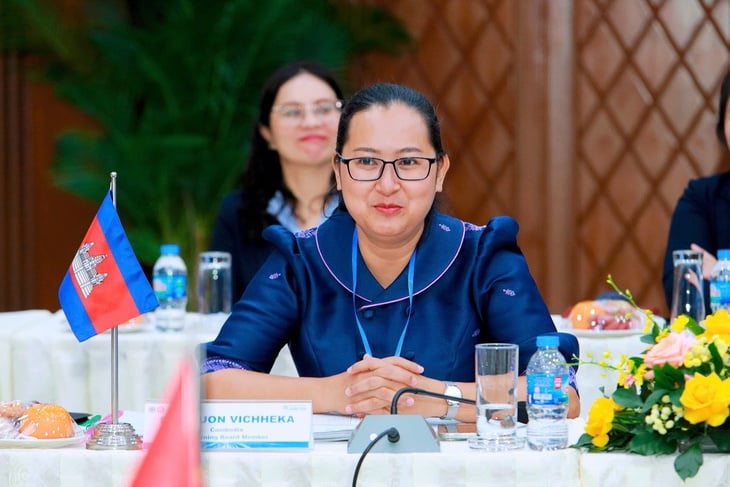
Dr. Khuon Vichheka shares in the forum - Photo: TRONG NHAN
Malaysia promotes digital transformation in education
Mr. Ab Aziz bin Mamat, Director of Aminuddin Baki Institute (Ministry of Education, Malaysia), said that Malaysia is promoting digital transformation in education with the issuance of Digital Education Policy (DEP) from 2023, linked to MyDIGITAL Blueprint and ASEAN Digital Masterplan 2025.
The Malaysian Ministry of Education has identified digitally proficient teachers, visionary leadership, and a quality, interconnected digital content ecosystem as pillars of this process.
The highlight is the multi-level teacher training program, from using learning management systems, designing multimedia content to applying artificial intelligence in the classroom.
Malaysia has also built a team of "Digital Education Pioneers" - highly trained core teachers - to spread digital skills. In addition, the SiPP platform helps teachers self-study and regularly improve.
Malaysia is not only focusing on teaching staff, but also on developing educational leadership. The MyDigital Trainer (MDT) program and AI training courses for more than 12,000 managers are shaping a generation of digital leaders who can guide, manage and drive innovation.
The goal by 2025 is for all more than 10,000 principals nationwide to meet digital leadership capacity standards, demonstrating the strong commitment of the Ministry of Education.
In terms of content, the DELIMa platform is considered the core. Currently, 94% of teachers and 100% of students have accounts, regularly using them to access a repository of free, personalized and highly interactive learning resources.
According to Mr. Ab Aziz, to achieve sustainable digital transformation, ASEAN countries need to continue upgrading connectivity infrastructure, expanding smart classrooms to remote areas, and investing in digital innovation centers to support teachers in content creation.
He emphasized that building a digitally proficient generation does not only rely on tools, but also requires innovative leadership and teachers who are ready to accompany students in the digital age.
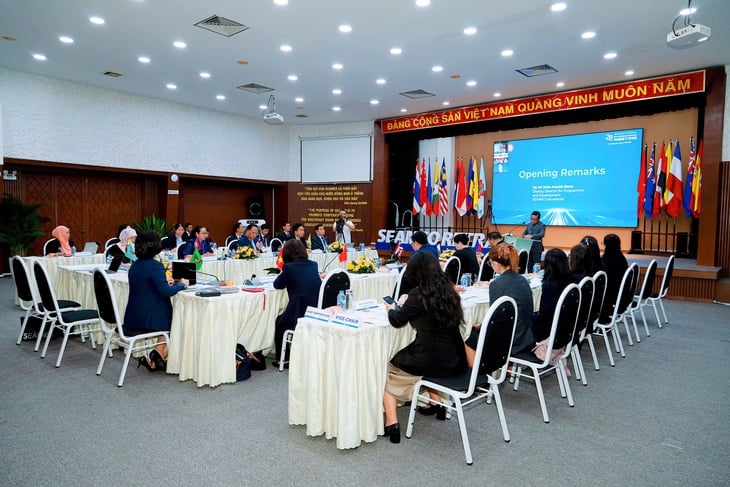
Also on September 29 and 30, 2025, SEAMEO RETRAC held the 28th Board of Directors Meeting (GBM28), attracting representatives of education leaders from Southeast Asian countries - Photo: TRONG NHAN
Forming a digital competency framework for teachers
Ms. Nguyen Thi Thanh Minh, Deputy Director of the Department of International Cooperation (Ministry of Education and Training), said that the upcoming focus of the industry is to build a comprehensive digital education ecosystem, where data, technology and people work together to create real change.
An important proposal is to form a digital competency framework for teachers, linked to teacher training reform. Under this orientation, digital and AI skills will become mandatory criteria, linked to the promotion path, encouraging teachers to continuously update.
She stressed that the AI strategy in education by 2030 will prioritize principles of ethics, safety and fairness.
This orientation aims to overcome the risk of digital inequality, while reducing administrative burden for teachers through AI tools to support test preparation, grading and learning analysis.
Source: https://tuoitre.vn/cac-nuoc-dong-nam-a-nang-chuan-giao-vien-de-nang-chat-giao-duc-2025092919101569.htm


![[Photo] General Secretary To Lam receives US Ambassador to Vietnam Marc Knapper](https://vphoto.vietnam.vn/thumb/1200x675/vietnam/resource/IMAGE/2025/9/29/c8fd0761aa184da7814aee57d87c49b3)
![[Photo] General Secretary To Lam chairs the meeting of the Central Steering Committee on preventing and combating corruption, waste and negativity](https://vphoto.vietnam.vn/thumb/1200x675/vietnam/resource/IMAGE/2025/9/29/fb2a8712315d4213a16322588c57b975)

![[Photo] National Assembly Chairman Tran Thanh Man chairs the 8th Conference of full-time National Assembly deputies](https://vphoto.vietnam.vn/thumb/1200x675/vietnam/resource/IMAGE/2025/9/29/2c21459bc38d44ffaacd679ab9a0477c)
![[Photo] Many streets in Hanoi were flooded due to the effects of storm Bualoi](https://vphoto.vietnam.vn/thumb/1200x675/vietnam/resource/IMAGE/2025/9/29/18b658aa0fa2495c927ade4bbe0096df)
![[Photo] General Secretary To Lam attends the ceremony to celebrate the 80th anniversary of the post and telecommunications sector and the 66th anniversary of the science and technology sector.](https://vphoto.vietnam.vn/thumb/1200x675/vietnam/resource/IMAGE/2025/9/29/8e86b39b8fe44121a2b14a031f4cef46)







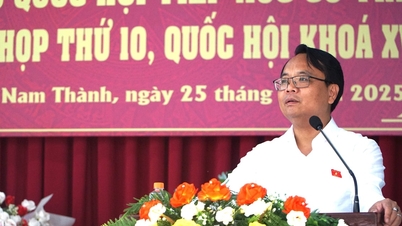



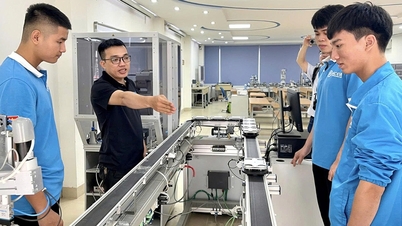

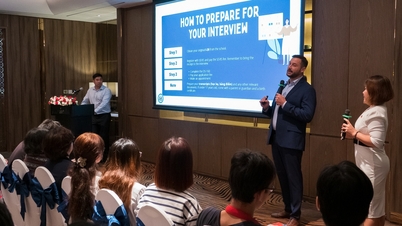
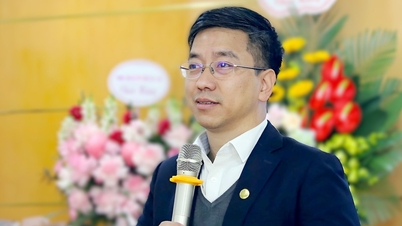

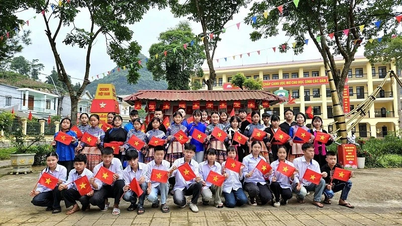

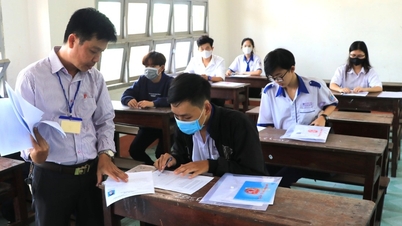








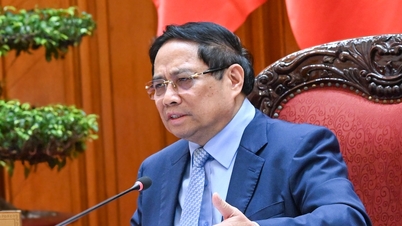
















































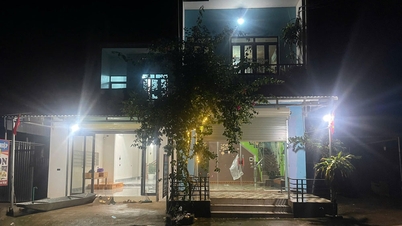





![[Infographics] An Giang tourism makes a spectacular breakthrough](https://vphoto.vietnam.vn/thumb/402x226/vietnam/resource/IMAGE/2025/9/30/e472f9f3f91d407ba4b7de460fb0481d)









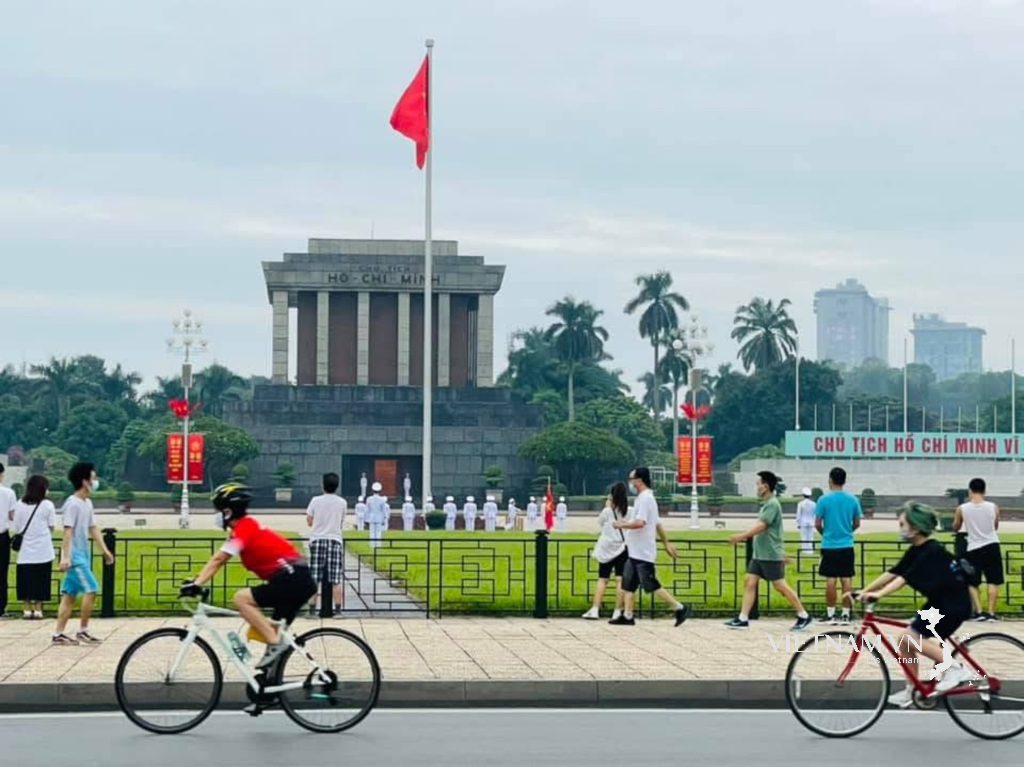


Comment (0)